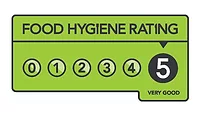Labeling, Traceability Non-Compliance Among Irish Food Businesses

Credit: jackmac34 via Pixabay
The Food Safety Authority of Ireland (FSAI) recently published its Audit of Food Business Operator Compliance with Meat Labelling and Traceability Requirements report, which discussed instances of non-compliance with food law in several food businesses. The report is based on 27 unannounced, onsite audits of supermarkets, butchers, foodservice establishments, storage and distribution facilities, meat processing plants, and slaughterhouses across Ireland. The audits, which took place between August 2021 and March 2022, focused on food business operators’ (FBOs’) compliance with meat labeling and traceability requirements.
From the audits, FSAI found that the “completeness, accuracy, and appropriateness” of information provided on labels varied greatly among FBOs. Over 100 individual product labels were examined across the 27 FBOs that were audited. Although the majority of labels examined were complete, accurate, and appropriate, FSAI identified non-compliance with labeling requirements for prepackaged foods at 18 of 27 establishments. Five instances of non-compliance were deemed serious offenses, including forgery, the use of inaccurate establishment approval numbers, the listing of misleading information, and the absence of allergen warnings or other required details.
Regarding traceability, FSAI found a diverse level of effectiveness and compliance among FBOs. Non-compliance with traceability requirements was detected at 10 of 27 establishments, five of which were considered serious offenses. Examples of serious offenses include the inability to identify meat suppliers, the inability to clarify whether or not certain foods were intended for human consumption, the use of labeling that impeded traceability, the presence of significant quantities of food that were not accounted for, and the unavailability of customer addresses. Less serious instances of non-compliance include the use of generally unreliable traceability systems.
Non-compliance with other aspects of food law, outside the planned scope of the audit, was also detected at 17 establishments, with 14 of the 17 instances considered serious. Examples of serious non-compliance included inadequate pest control, the presence of foreign body contaminant hazards, inadequate allergen risk management, poor carcass hygiene, inadequate control of animal byproducts, the unlawful reprocessing of returned meat with expired use-by dates, the freezing of meat on its use-by date, and other unapproved activities. Less serious instances of non-compliance included inadequate Hazards Analysis and Critical Control Points (HACCP) systems, inadequate cold-chain maintenance, and disregard for minced meat requirements.
In total, ten formal enforcement actions were taken against six non-compliant FBOs, and corrective action reports were issued to all FBOs that demonstrated non-compliance. FSAI also made 14 recommendations to strengthen compliance with food law, including the recommendation for FBOs to minimize food waste. FSAI will collaborate with official agencies to explore opportunities to strengthen the efficacy of official controls.
FSAI also noted that good practices were observed at some FBOs during the audits. Good practices included routine DNA speciation testing; the voluntary use of short supply chains for meat ingredients; and the retention of digital records of labels, commercial documents, and traceability records.
Looking for quick answers on food safety topics?
Try Ask FSM, our new smart AI search tool.
Ask FSM →









